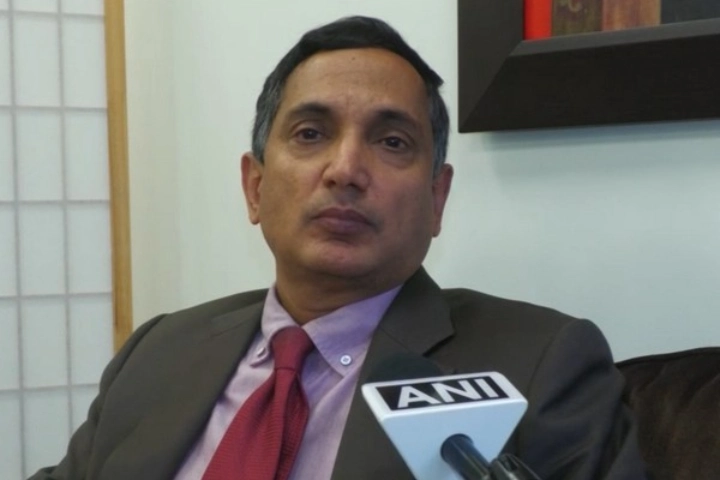
India is on a sustained growth path driven by consumption and public investment, India's economic performance stands out against the backdrop of global uncertainties, Krishna Srinivasan Director, Asia and Pacific Department, said in an exclusive interview to ANI.
“Growth of 6.8% in 2024-25 is an impressive number. And this is led by large-scale private consumption and public investment” Srinivasan said
Srinivasan says India has successfully recovered from many shocks in the past, from the pandemic to the recent tensions in the Gulf. Recognizing India's growth potential, he also underlined the need for reforms in India to fully leverage the demographic benefits. Emphasizing significant investments in education, healthcare, changes in labor laws and the business environment, he highlighted the imperative of collective efforts by the Center and states to ensure India realizes its economic potential.
“I would now highlight that India has a young growing population, we are likely to add about 15 million people to the labor force every year. If you want to benefit from this demographic change, you will need a lot of reforms. I think in particular, I would emphasize the need for significant investment in education, health care, so that this growing labor force can contribute productively to the economy,” he said.
He further added, “I think India also needs to liberalize its trade regime to remove restrictions so that companies can compete. Well. You have to make the environment more attractive for FDI.”
Srinivasan also stressed the importance of reforms in India to maintain growth rates equal to or even higher than China. He acknowledged India's position as the fastest growing economy, surpassing China, albeit with recognition of China's significantly larger scale.
“China is more than four times larger than India. The medium term upside prospects for India are quite good at 6.5%. It can do better than that. But all this impacts the reforms being pursued by India. If these hearts and minds can come together and embark on reforms, India can achieve 6.5% or more over the next several years,” he said.
Addressing concerns about excessive GDP growth, he expressed confidence in India's national accounts data, acknowledging ongoing efforts by the Government of India to improve data quality and transparency.
“I think the Indian government is actively working on trying to fix the quality and improve the quality of the data. And, you know, they're focusing on trying to get better estimates of regional data, trying to survey income and income exponential households and businesses,” he said.
While acknowledging the important role of public investment in driving growth after the pandemic, he noted the slow pace of private investment. India's reforms aimed at improving the business environment are considered important to encourage private investment and unlock India's full growth potential.
“The Indian government has invested a lot in terms of capex spending to meet infrastructure needs, be it rail, roads, airports etc. The amount that the Government of India has spent on this has bridged the infrastructure gap,” he said.
“Over the last several years, bad balance sheets have been cleaned up and corporates have deleveraged, so in some sense, corporates are now in a good position in terms of their own investments and financing for investments. Going forward, private investment will grow at a very high pace” he further said.
India's achievements in digital infrastructure, especially initiatives like Digital Public Infrastructure (DPI), were cited as exemplary. Srinivasan highlighted India's ability to leverage its technological advancements for global benefit, emphasizing the importance of openness and interoperability in maximizing the impact of digital initiatives.
“This (digital public infrastructure) is a very developmental step in the Indian scenario. DPI will increase productivity in India by promoting innovation and competition. This is going to improve financial inclusion and most importantly improve the efficiency of the public sector. These are the factors that are given and I think it's really impactful” he said.
Srinivasan said the IMF will release a comprehensive report in Singapore, detailing global economic developments and their impact on countries like India. The report will shed light on the factors guiding growth, impacts from China, corporate risks and more and provide valuable guidance for policymakers and stakeholders.
PressNews24 provides latest news, bollywood news, breaking news hollywood, top tech news, business standard news, indian economy news, world economy news, travel news, mumbai news, latest news mumbai loksabha election 2024, video viral news, delhi news, Only at PressNews24.in





